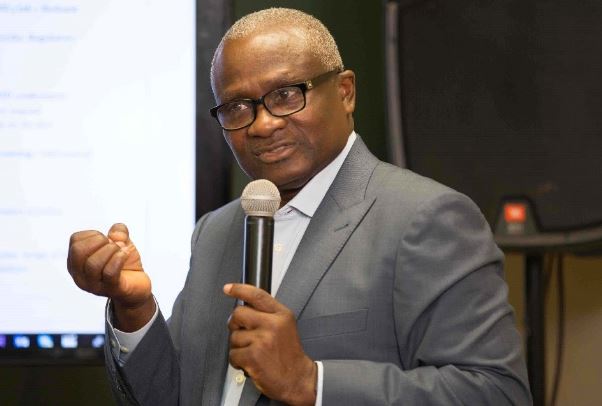As concerns over viral outbreaks heighten across West Africa, the Nigeria Centre for Disease Control (NCDC) has issued a fresh public health advisory in response to two suspected viral hemorrhagic fever cases in Abuja. According to the NCDC, both cases have tested negative for Ebola and Marburg viruses, two of the most deadly pathogens in the world. However, efforts are underway to identify the precise cause, with samples now being examined for other viral hemorrhagic fevers, notably Lassa fever and dengue fever.
Dr. Jide Idris, the Director-General of NCDC, explained on Friday that the situation remains under close surveillance, with lab analyses ongoing to rule out or confirm other dangerous viruses. He shared that the most recent suspected case involved a Nigerian traveler who, upon returning from Kigali, Rwanda, promptly visited a hospital in Abuja after noticing symptoms. His swift action and the vigilant response from medical professionals at Nisa Premier Hospital were described as vital in containing any potential public health risk.
“The traveller’s decision to report early, alongside the sharp observation of clinicians, ensured that Nigeria’s public health system could move quickly and reduce all public risk,” Dr. Idris reportedly stated.
Context: Growing Concern as Ebola Outbreak Emerges in the DRC
The NCDC’s advisory comes at a time when neighboring regions are battling serious outbreaks. The Democratic Republic of Congo (DRC), Nigeria’s continental peer, is currently experiencing a new Ebola outbreak. According to the World Health Organization (WHO), 48 confirmed and probable cases of Ebola have been recorded near Bulape in the DRC’s central region, with a devastating 31 deaths so far. WHO Director-General Dr. Tedros Adhanom Ghebreyesus announced on Thursday that more than 900 contacts have been identified and categorized for monitoring, while vaccination of at-risk individuals and front-line workers has commenced.
Ghebreyesus further noted the initiatives deployed in the affected communities: “An Ebola treatment centre with 48 beds has been established, monoclonal antibody therapy is being administered, and on Tuesday, the first two patients were discharged after recovery,” he said. To bolster containment, WHO has shipped 14 tons of critical medical supplies and assigned 48 professionals on the ground, while launching a $21 million appeal to ramp up response efforts.
Preparedness Measures: Nigeria Tightens Health Safeguards
In light of developments across borders, Nigeria’s NCDC has stepped up national risk assessment and implemented precautionary strategies. These measures include strengthened surveillance at airports, seaports, and land borders; elevation of readiness levels at isolation and treatment centers; and the pre-positioning of equipment and supplies necessary for infection prevention and case management.
NCDC leadership underscored that all operable laboratories are on standby for fast-track testing, and field teams stand ready to launch contact tracing, should the need arise. Dr. Idris urged Nigeria’s 36 states and the FCT to ensure the full functionality of isolation centers and reinforce support for surveillance workers.
Healthcare professionals, particularly those in the private sector, have also been called to maintain stringent infection control protocols and quickly report unusual cases via the appropriate channels. “Private hospitals play a critical role in early detection and must be fully integrated into the system,” the NCDC highlighted in its latest statement.
Public Awareness: Steps Nigerians Can Take
With rumors and misinformation often spreading faster than facts, Nigerians are being strongly encouraged to rely solely on updates from NCDC and recognized government sources. Dr. Idris emphasized the dangers of false messages, warning that they can stoke panic, increase stigma, and deter individuals from seeking urgent medical care.
- Maintain proper hand hygiene (regular washing with soap and water or sanitizers).
- Avoid physical contact with individuals displaying symptoms of viral infection.
- Minimize direct animal-to-human contact, especially when handling bushmeat.
- Seek immediate medical attention if unexplained symptoms emerge—especially after travel to affected countries.
“Staying vigilant and informed is our best defense,” Dr. Idris advised.
Ebola Virus Disease: Fast Facts and Local Relevance
Ebola virus disease (EVD) is regarded as one of the most lethal communicable diseases globally. As explained by the NCDC, EVD is a severe, often fatal illness caused by infection with a member of the Ebola virus family, with fatality rates ranging between 25% and 90% depending on the strain and response strategies. While Nigeria successfully contained its last outbreak in 2014, nearby countries remain highly vulnerable due to porous borders, frequent travel, and limited resources—a reality underscored by the current situation in the DRC.
There are five genetically distinct Ebola virus species—Bundibugyo, Reston, Tai Forest, Sudan, and Zaire—each responsible for different outbreaks. The Zaire strain, which is the most virulent, is reportedly linked to the most recent DRC outbreak, according to the WHO.
Ebola spreads to humans through direct contact with the bodily fluids of infected persons or animals (living or dead), and is often traced to bushmeat handling, preparation, or consumption. Once infected, a person can further transmit the disease to others through blood, saliva, urine, sweat, vomit, breast milk, or even contaminated syringes. Health workers, caregivers, and those involved in burial ceremonies, especially when washing or touching bodies, face significantly higher risks.
Symptoms typically appear within two to 21 days after infection. Ebola usually begins with a sudden onset of fever, extreme tiredness, muscle and joint pains, headache, and sore throat. As the disease worsens, patients may develop vomiting, diarrhea, rashes, and jaundice. In severe cases, uncontrolled bleeding, multiple organ failure, and death may occur, most often within eight to nine days after symptoms begin. Prompt medical care and isolation are vital for recovery and to prevent spread.
Local Perspectives: How Are Nigerians Reacting?
Within Abuja and other cities, the news of suspected cases and international developments has caused visible concern among residents. “We must take these advisories seriously,” stressed Chidinma Okafor, a public health student in Abuja. “Nigerians move and trade across West Africa daily, so our borders are porous and vigilance is not optional—it is our collective duty.”
Health experts have urged the public not to stigmatize those returning from travel, highlighting that early self-reporting and testing are the most reliable tools to prevent outbreaks. “Blaming those who come forward only forces potential cases underground, worsening community risk,” explained Dr. Charles Mensah, an epidemiologist based in Lagos.
In communities where bushmeat is a prized delicacy, cultural and economic factors complicate the risk. Vendors in Nigeria’s urban markets, like Lagos and Port Harcourt, expressed fears over diminished sales, even while acknowledging the importance of public health directives. “We have a responsibility to our customers, but sometimes customers even joke about Ebola. Some think it’s only on the news,” said a bushmeat seller in Bodija market, Ibadan.
Global Implications and the Way Forward
Epidemics do not respect borders. As travel and trade continue to connect Nigeria, Ghana, and the rest of West and Central Africa, collaborative systems of surveillance, communication, and response are more crucial than ever. The NCDC, alongside African health agencies and international bodies like the WHO, continues to emphasize preparedness through real-time data sharing, prompt case identification, laboratory capacity strengthening, and border checks.
Despite challenges such as inadequate funding, logistical bottlenecks, and persistent misinformation online and offline, Nigeria’s rapid containment of outbreaks in past years demonstrates that public vigilance, early reporting, and a coordinated government response can save lives. Continued investment in health security, both by government and development partners, remains non-negotiable for preventing future emergencies.
Are you confident in Nigeria’s capacity to prevent and contain viral outbreaks? How do you protect your family during public health scares? Share your thoughts in the comment section and stay connected for prompt updates on health and safety news.
Have a tip, an opinion, or a story to share? We want to hear from you—your experiences and insights could help others and make a difference. Reach out and get your story published or discuss story sales by emailing story@nowahalazone.com.
For general support, questions, or more information, contact support@nowahalazone.com.
Connect with us for breaking news and exclusive updates—follow us on Facebook, X (Twitter), and Instagram!









